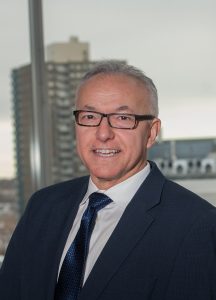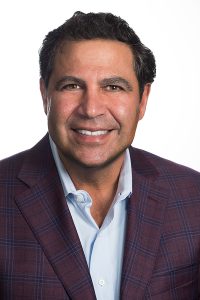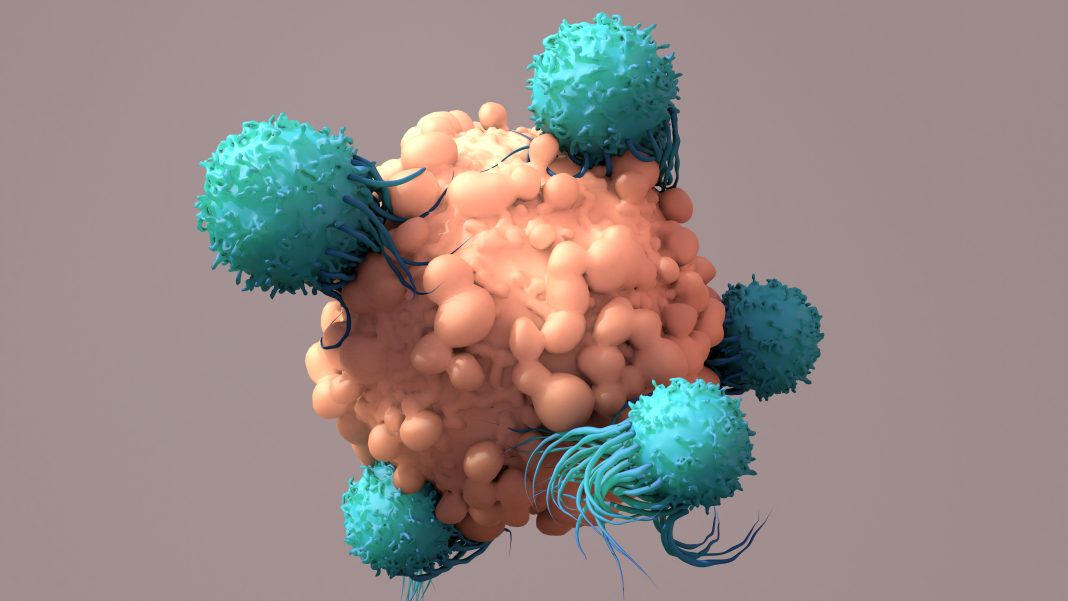

ElevateBio announced the formation of a new company with George Daley, M.D., Ph.D., Dean of Harvard Medical School, and Boston Children’s Hospital, to develop allogeneic immune therapies derived from induced pluripotent stem cells (iPSCs). The entity unveiling has been coupled with a peer-reviewed publication in Cell Stem Cell that describes a novel differentiation process from Daley’s lab to develop mature immune cells from iPSCs, a potentially disruptive advantage in the development of allogeneic iPSC-derived immunotherapies. This is the first company to emerge from the five-year cell and gene therapy collaboration between Boston Children’s Hospital and ElevateBio.
“The importance of George’s discovery and this work is the dedication of this newly formed company—to reach as many patients as possible with a modality that will save lives and dramatically impact society,” David Hallal, Chairman and CEO of ElevateBio, told GEN Edge. “We have to turn these mature T cells into ideal cancer-fighting immunotherapies and the clinical-grade commercial ready cell therapies. We are dedicating ourselves to accelerating the advancement and transition from research grade cell therapy into clinical grade cell therapy so we can match our way toward clinical development.”
Making Allogenic Immune Therapies on the Daley
For the past 25 years, Daley has focused on understanding the molecular mechanisms of blood development. Typically, he’s studied developmental biology in the mouse or fish. But he says that the applications of this research in humans with human iPSCs are clinically relevant. In the Cell Stem Cell paper, Daley and his team use epigenetic reprogramming (by inhibiting the repressive methyltransferase EZH1)—to generate developmentally mature iPSC-derived CAR T cells with enhanced anti-tumor activities.
One of the values of having iPSCs as the resource is that they can be manufactured at scale and put through exhaustive quality control. “There’s a tremendous drive to get these cells manufactured and expanded in a clinical grade process,” said Daley to GEN Edge. “Ultimately, I hope this is just the vanguard of a whole series of off-the-shelf therapies that can be done more safely with less of a patient-specific focus, which makes it expensive and cumbersome. I see this as a way of democratizing cell therapy.”
Match Made in Hematopoietic Heaven
Daley’s iPSC-derived immunotherapy had no shortage of suitors, from big pharma and medium-sized biotech to several options for seeding a new company. Daley told GEN Edge, “I had gone quite a way down the path to setting up a company, and yet I was never really comfortable with just doing it from a fresh start.”
Hallal told GEN Edge that he saw the perfect intersection of capabilities between what George and his Boston Children’s Hospital team had developed and everything they would need to advance this forward. Hallal told GEN Edge, “When we sat with George and looked at this remarkable data that you now see published, [we at ElevateBio] thought, ‘This is incredibly disruptive. This is making better-ready CAR T cells for cancer immunotherapy—something the world needs.’ We felt we had all the technologies, capabilities, and talent to advance this forward in a better, faster, and more capital-efficient way than a traditional company build would exist,” said Hallal to GEN Edge.
ElevateBio houses the scaled-up process development and manufacturing capabilities needed for this cell therapy endeavor. “It’s quite a nice way to start an entity as opposed to the traditional formation of a seed round with management and additional costs that one doesn’t need to incur at this point,” Hallal told GEN Edge. “We’re able to channel the capital directly into the transition from research grade to clinical grade cell therapies that eventually will be ready to be tested in patients.”
The new company will leverage ElevateBio’s unique iPSC platform and ecosystem of enabling technologies and manufacturing capabilities to create allogeneic immune cell therapies. ElevateBio’s gene editing platform has been instrumental in creating hypoimmune iPSCs, enabling enhanced duration and effectiveness. These cells will be able to persist for quite some time. “Our gene editing capabilities and platform are critical here as we form the ideal hypoimmune iPSC so that we can have as low in immunogenicity trigger as possible for the persistence of these cells safely,” Hallal said to GEN Edge.
When Daley heard about the array of technologies that Elevate had, he says it was pretty straightforward from that point on to decide that this was the group with much more established capability than any of the other courting groups. “Another reason to partner with ElevateBio was that they had sophisticated approaches to the immunogenicity problem,” Daley told GEN Edge. “It seemed like a match that was made for success.”
Name Dropping
Later this year, the founders will unveil a name and more information about the company that, according to Hallal, will locate out by where ElevateBio operates. “We are going to put everything that we have into advancing this in an accelerated fashion but with the highest degree of quality in terms of people and resources into the program,” Hallal said to GEN Edge. “We’ve greatly expanded our footprint with more labs for process development, analytical development, our iPSC platform, and our immunotherapy capabilities.”
This is just the first effort to make a clinical translation of clinical grade cells from IPSCs. Daley says that he will continue on the fundamental side of the research, and the company will be taking this forward to generate the cells under clinical-grade conditions. “I want to continue to press the frontiers of different T-cell lineages,” said Daley to GEN Edge. “We’re very interested in NK cells and hematopoietic stem cells. I’m super excited about that, but my lab will continue to push the envelope of making other varieties of lymphocytes and hematopoietic stem cells.”
Hallal thinks that this entity is in the position to transform the lives of a small number of children and adults with some rare cancers with this modality. “The outcomes of autologous cell therapies are irrefutable,” Hallal told GEN Edge. “We feel we’re humbled and honored to be trusted with something that we believe is the most disruptive technology that we have seen in this space. The only challenge is we just can’t reach enough patients fast enough.”






